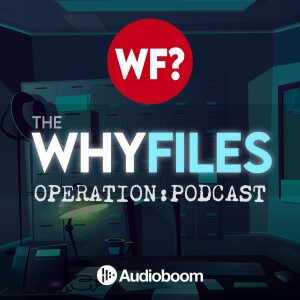

The Pacific Engagement Visa offers a life-changing opportunity for up to 3,000 Pacific Islanders and Timorese citizens annually to gain permanent residency in Australia. In this episode, Development Policy Centre Research Officer Natasha Turia discusses the newly opened 2025-2026 ballot, sharing insights from her research tracking the program's rollout and surveying PEV winners from Papua New Guinea. The conversation includes first-hand testimony from a successful PEV visa holder who has relocated to Australia, an update from DFAT's Jan Hutton on program improvements, and practical guidance on navigating the application process — from entering the ballot to securing a job offer and meeting visa requirements. With only a short period of time before the ballot closes (25 August), the episode provides essential information for prospective applicants while exploring the broader significance of this visa for Pacific labour mobility and regional integration.
The episode opens with powerful testimony from a Papua New Guinean woman who recently migrated to Australia through the Pacific Engagement Visa. She outlines her three main motivations: accessing better income and job opportunities, living in a safer environment where she can move freely, and obtaining quality healthcare. Now working on a fly-in fly-out basis between Cairns and the Northern Territory, she describes the mixed emotions of leaving family behind while embracing new freedoms and opportunities in Australia.
Host Amita Monterola introduces Natasha Turia, a Papua New Guinean scholar and PhD candidate at ANU's Department of Pacific Affairs, who has been working with Centre Director Stephen Howes to track the PEV's implementation. Turia explains why the visa represents such a significant opportunity for Pacific Islanders facing high unemployment and limited prospects for improving their families' living standards in their home countries.
The conversation establishes key dates and changes for the 2025-2026 ballot. Unlike the inaugural round which ran for nearly three months, this year's ballot opened with just four weeks for registration, closing on 25 August. The shortened timeframe represents one of the most significant changes from last year's process. Turia notes that 11 countries are participating this round, with Samoa and Kiribati joining after opting out in 2024. Papua New Guinea maintains the largest quota at 1,350 visas, while the Federated States of Micronesia and Palau have the smallest allocation at 50 each.
The episode features Jan Hutton, First Assistant Secretary of DFAT's Pacific Integration Division, speaking at the Pacific Update conference in Fiji. Hutton acknowledges the program's challenges while emphasising Australia's commitment to making it work. She reveals that as of June 2024, approximately 600 visas had been issued from the inaugural ballot of 56,000 primary registrants. By October, this number had grown to 1,000 visa grants — progress that Turia describes as positive, even if below the full 3,000 allocation.
Hutton addresses systemic challenges facing applicants, particularly difficulties obtaining basic documentation like passports, police clearances, and health checks in their home countries. She outlines how the Australian government has invested in the Pacific Engagement Visa Support Service to help applicants navigate these requirements and connect with potential employers. A crucial change highlighted is that applicants now need only their passports to lodge the initial visa application within the 120-day deadline, with additional time granted to gather other required documents.
The discussion turns to practical requirements for entering the ballot. Turia explains that primary applicants must be aged 18-45, hold a valid passport from a participating country, have been born in or have a parent born in an eligible country, and pay the A$25 ballot fee. New this year is the requirement for an ImmiAccount with multi-factor authentication—a security measure that may present technical challenges for some applicants but is designed to protect their personal information.
On the question of using migration agents, Turia advises that the ballot process itself is straightforward enough not to require professional assistance, though she acknowledges some applicants without credit cards may need help from trusted third parties to pay the fee. She recommends accessing official government websites and consulting with others who have successfully navigated the immigration process.
The job offer requirement emerges as perhaps the most challenging aspect of the visa process. Turia emphasises the importance of having an open mind about employment, noting that accountants don't need to find accounting work; any formal 12-month job offer suffices. The Pacific Engagement Visa Support Service aims to bridge this gap by connecting applicants with employers willing to hire PEV visa holders.
Financial considerations feature prominently in the discussion. Beyond the A$25 ballot fee, successful applicants face visa application fees of A$335 for the primary applicant and A$80 per dependent. Turia's research calculates minimum migration costs of around A$10,000 for a single person moving to Brisbane, including documentation, health checks, airfares and initial accommodation. While the 12-month job offer provides income security, applicants need savings for upfront costs — a reality many weren't fully aware of in the inaugural round.
The episode also touches on the special arrangements for Tuvalu under the Falepili Union treaty. Unlike other participating countries, Tuvaluan applicants don't require a job offer once selected in their separate ballot of 280 places. This more liberal visa setting reflects the bilateral agreement between Australia and Tuvalu, though applicants must still meet other eligibility requirements.
The episode concludes with both Turia and the PEV holder offering encouragement to prospective applicants. The visa holder urges people to "have an open mind, be positive and take this great opportunity", dismissing any suggestions the program might be a scam by pointing to her own successful experience. She provides practical tips: create an email account, update passports and other identity documents, and start saving money. "Do this for you and your family," she says. "This is a great opportunity. Take it."
Turia frames the opportunity in terms of rights and choices: "It is everybody's right to a decent standard of living ... And if an opportunity is presented to you, like the Pacific Engagement Visa, it is your right also to choose to have that better life for you and your family." She encourages potential applicants to learn as much as possible about the visa process, living and working in Australia, and to start asking questions to better prepare for permanent migration.
Read and subscribe to our daily blogs at devpolicy.org.
Learn more about our research and join our public events at devpolicy.anu.edu.au.
Follow us on Twitter, Facebook, LinkedIn and Instagram for latest updates on our blogs, research and events.
You can send us feedback, and ideas for episodes too, to devpolicy@anu.edu.au.
More Episodes
All Episodes>>Create Your Podcast In Minutes
- Full-featured podcast site
- Unlimited storage and bandwidth
- Comprehensive podcast stats
- Distribute to Apple Podcasts, Spotify, and more
- Make money with your podcast












